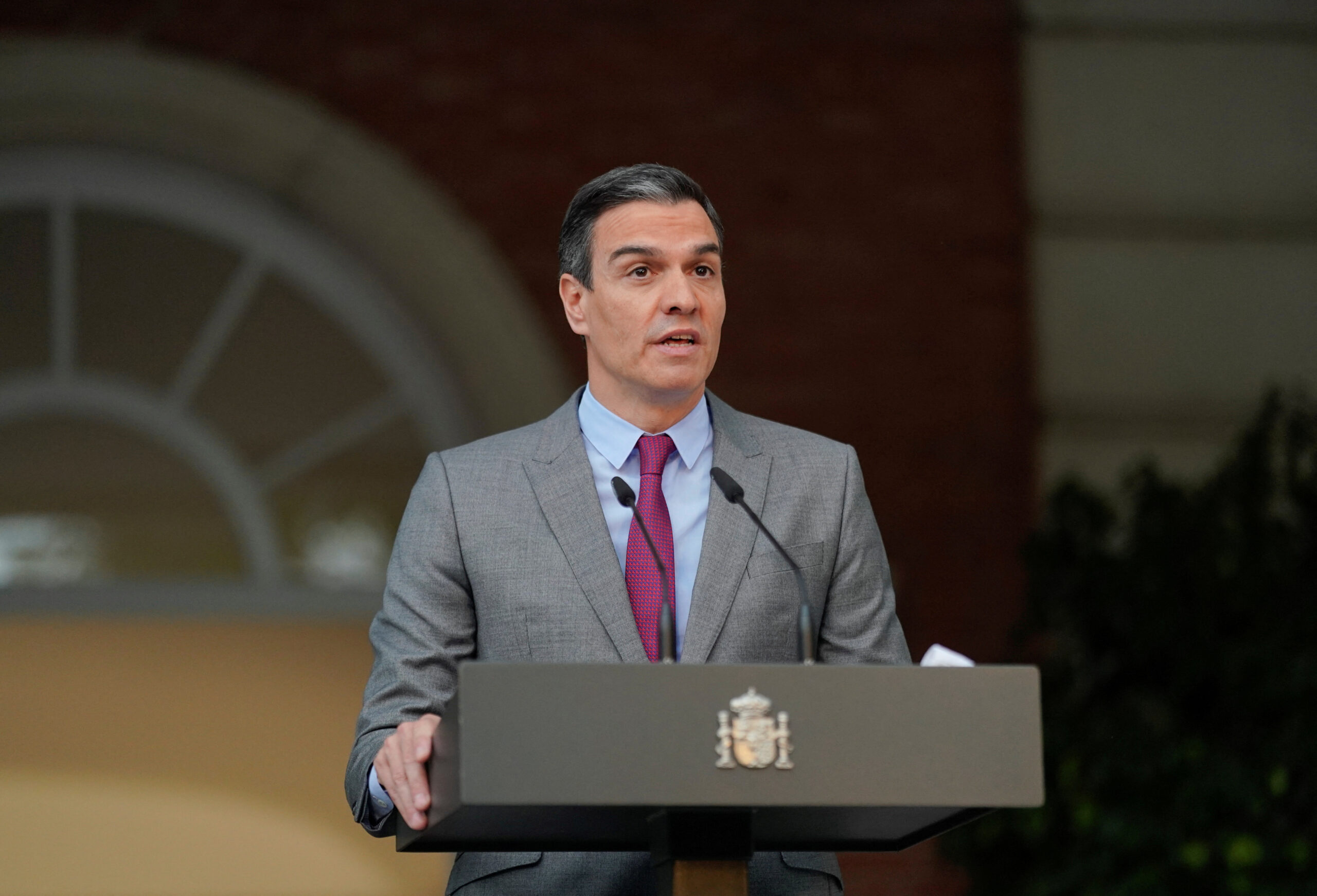
PM Sanchez of Spain’s political bets will be put to the test in the Catalan election
Next week’s crucial elections in Catalonia will evaluate the viability of Spain’s Prime Minister Pedro Sanchez’s most recent political gambits. Sanchez wants to use the vote to increase his authority nationally but runs the risk of unintentionally igniting a long-dormant Catalan separatist movement.
In the referendum on May 12, Sanchez hopes to unseat separatists who have a disproportionate amount of power in Spanish politics and seize control of the affluent region. However, a poor performance by his Socialists might sabotage his tenuous legislative coalitions in Madrid and jeopardize the survival of his minority government.
Additionally, seven years after the issue sparked Spain’s biggest political crisis in almost 30 years, it might resurrect Catalan secession.
According to opinion polls, Salvador Illa, the socialist candidate, is expected to win handily over the more extreme Junts party. The separatist Esquerra Republicana de Catalunya (ERC), which presently governs the northeastern province, and its competitor will likely compete for second place.
A victory would validate Sanchez’s accommodating stance toward the area’s independence movement, which most recently involved offering Catalan separatists amnesty in return for their support of his minority government in the Spanish parliament.
Additionally, it may reassure the prime minister that his followers were not bitter after some expressed unhappiness with the amnesty offer. Aiming to strengthen his position across the political spectrum, Sanchez took a five-day leave of absence from work last month to consider resigning due to what he claimed was a campaign of defamation by right-wing opponents against him and his family. This move caught many Spaniards off guard.
However, the Socialists’ success might be short-lived if they are forced to form coalitions with other parties, perhaps even their right-wing adversaries the People’s Party (PP), in order to obtain the 68 members needed for a majority in the Catalan parliament.
Junts has cautioned that an agreement of this kind with the PP would force it to renounce its vital backing of Sanchez’s national administration, obstructing the passing of laws in the Madrid parliament and eventually rendering it untenable.
On the other hand, if separatist parties experience a late surge in support and are able to put past grudges aside to form a coalition, Sanchez would be dealt a double blow by losing the regional election and witnessing a separatist movement rekindle its national aspirations for independence, especially if the winner is the exiled Carles Puigdemont.
Puigdemont, a former president of Catalonia who led an unsuccessful attempt at independence in 2017 and fled to Belgium, is a candidate for Junts and hopes to win back his own country. The amnesty, which is anticipated to take effect in late May or early June, is set to lift the Spanish arrest warrant that he is facing in relation to those incidents.
The impact of regional politics on national government was already shown by an election held in the Basque Country last month.
After garnering votes in that election, the Socialists will rejoin the moderate nationalist PNV alliance, which backs the current administration.
The Socialists hope to build on their impressive performance in Catalonia during the previous year’s national election, when they received over twice as many votes as the next most popular party, the far-left Sumar. This result was interpreted as a sign that support for independence was waning.
According to Lluisa Moret, the head of the Socialist campaign, their objective is to secure over 40 seats in the 135-seat regional assembly this time. In the current Catalan assembly, the Socialists have 33 seats, tied with the ERC, while Junts have 32.
At a recent event, Illa—a composed former national health minister whose slogan is “to unite and serve”—barely mentioned Puigdemont, not even bringing up the amnesty that certain socialist voters, according to polls, are against.
He pledged to put the “lost decade” of separatist behind him and concentrate on issues like climate change, which is significant for Catalonia because it is experiencing water shortages due to a drought.
“Illa’s belief in discussion makes him a capable presidential candidate. “Catalonia is currently seeking reconciliation,” stated 20-year-old David Carvajal, who was present at the demonstration.
Vice President Redon, 71, stated that the amnesty measure should encourage voters to support the Socialists, but he cautioned that separatist fervor might still flare up if Puigdemont wins back the presidency and begins a new campaign to secede from Spain.
Even if the amnesty does not eliminate the possibility of Puigdemont’s arrest before then, he has stated that he intends to conclude his 6-1/2 years in exile in Belgium in order to attend Catalonia’s next swearing-in ceremony.
Junts has set up buses from Catalonia to his rallies in Argeles-sur-Mer, where he is conducting his campaign from over the border in southern France. Speaking to Reuters, Puigdemont stated that he preferred to interact personally with people as opposed to being on big screens.
However, he acknowledged that any new independence movement would require “more cunning and better preparation” and that it would be difficult to win back the confidence of voters who were dissatisfied with his handling of the disastrous 2017 independence declaration.
The election, according to columnist Josep Ramoneda, will reveal whether or not people are bored with the legacy of 2017.
Declaring that Catalonia had changed, he said, “it is a total mistake and will unlikely pay important dividends to Puigdemont to come out with a discourse of ‘we will do it again’.”
All Categories
Recent Posts
Tags
+13162306000
zoneyetu@yahoo.com



